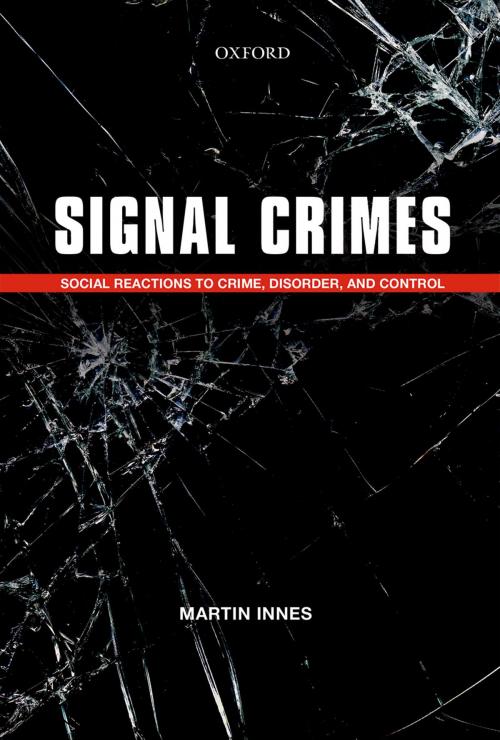Signal Crimes
Social Reactions to Crime, Disorder, and Control
Nonfiction, Social & Cultural Studies, Social Science, Crimes & Criminals, Criminology, Reference & Language, Law| Author: | Martin Innes | ISBN: | 9780191507434 |
| Publisher: | OUP Oxford | Publication: | June 11, 2014 |
| Imprint: | OUP Oxford | Language: | English |
| Author: | Martin Innes |
| ISBN: | 9780191507434 |
| Publisher: | OUP Oxford |
| Publication: | June 11, 2014 |
| Imprint: | OUP Oxford |
| Language: | English |
How do individuals, communities, and institutions react to crime, disorder, and social control events? How do such incidents shape the contours of social order and the make-up of society? Why do some crimes and disorders matter more than others in influencing how we think, feel, and act about our security? These are the questions that lie at the heart of Signal Crimes: Social Reactions to Crime, Disorder, and Control. Signal Crimes: Social Reactions to Crime, Disorder, and Signal Crimes brings together the key insights and findings from a ten-year programme of fieldwork investigating the concept of a 'signal crime': an incident that changes how people think, feel and behave about their safety due to it functioning as a signal of the presence of wider risks and threats. Presenting ground-breaking new perspectives on social reactions to crime, Signal Crimes innovatively and rigorously examines how and why particular events trigger certain forms of reaction, and how these unfold and develop across social space and time. This includes detailed studies of: how fear travels within and across communities in the aftermath of criminal homicides; the ways rumours impact upon what we think about the prevalence and distribution of crime; the extent to which some individuals and neighbourhoods are vulnerable to being harmed more by disorder than others; how the conduct of counter-terrorism has been altered in recent years by the institutional effects of a number of signal events; and the ways in which social control interventions are used to communicate messages to public audiences. Through examination of these diverse issues and using a range of both historical and contemporary sources, the author reveals how our individual and collective responses to problematic behaviour are organised. If a perspective constitutes a way of seeing, then the signal crimes perspective provides a new set of optics for how we see the impacts of crime, disorder, and control. Showcasing the development of this new concept, Signal Crimes argues for a radical and challenging understanding of how we think not only about the crime, but also about the ways in which we perceive and react to such problematic and troubling acts.
How do individuals, communities, and institutions react to crime, disorder, and social control events? How do such incidents shape the contours of social order and the make-up of society? Why do some crimes and disorders matter more than others in influencing how we think, feel, and act about our security? These are the questions that lie at the heart of Signal Crimes: Social Reactions to Crime, Disorder, and Control. Signal Crimes: Social Reactions to Crime, Disorder, and Signal Crimes brings together the key insights and findings from a ten-year programme of fieldwork investigating the concept of a 'signal crime': an incident that changes how people think, feel and behave about their safety due to it functioning as a signal of the presence of wider risks and threats. Presenting ground-breaking new perspectives on social reactions to crime, Signal Crimes innovatively and rigorously examines how and why particular events trigger certain forms of reaction, and how these unfold and develop across social space and time. This includes detailed studies of: how fear travels within and across communities in the aftermath of criminal homicides; the ways rumours impact upon what we think about the prevalence and distribution of crime; the extent to which some individuals and neighbourhoods are vulnerable to being harmed more by disorder than others; how the conduct of counter-terrorism has been altered in recent years by the institutional effects of a number of signal events; and the ways in which social control interventions are used to communicate messages to public audiences. Through examination of these diverse issues and using a range of both historical and contemporary sources, the author reveals how our individual and collective responses to problematic behaviour are organised. If a perspective constitutes a way of seeing, then the signal crimes perspective provides a new set of optics for how we see the impacts of crime, disorder, and control. Showcasing the development of this new concept, Signal Crimes argues for a radical and challenging understanding of how we think not only about the crime, but also about the ways in which we perceive and react to such problematic and troubling acts.















